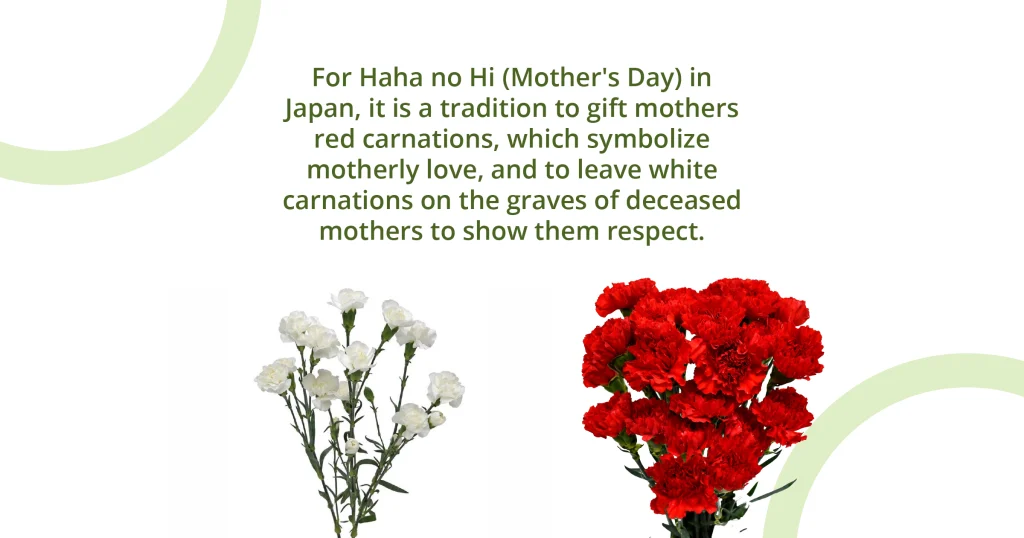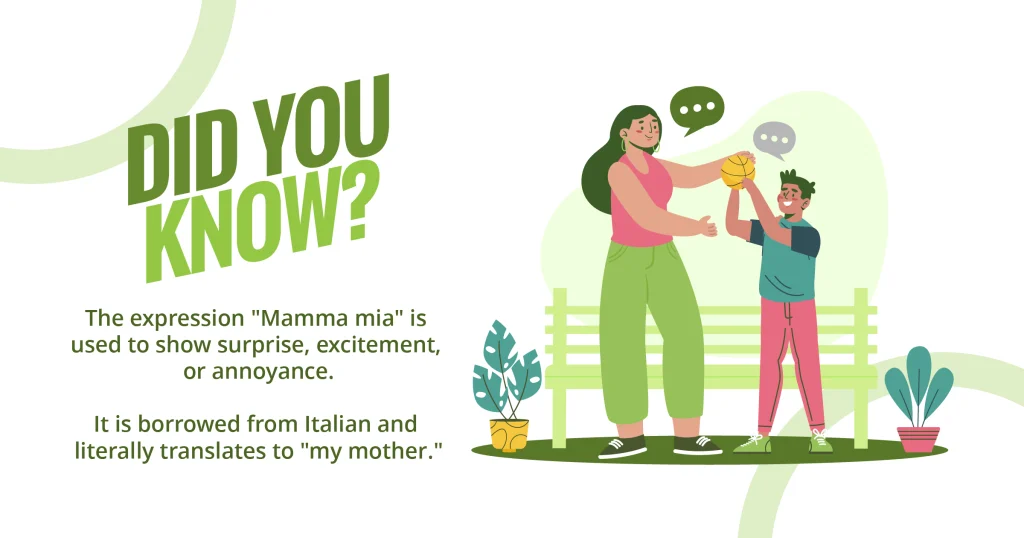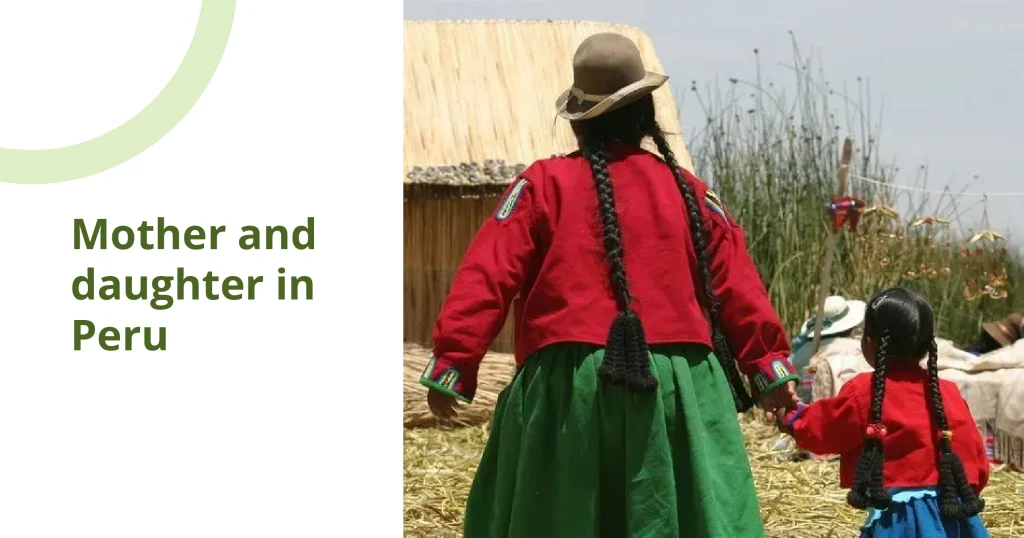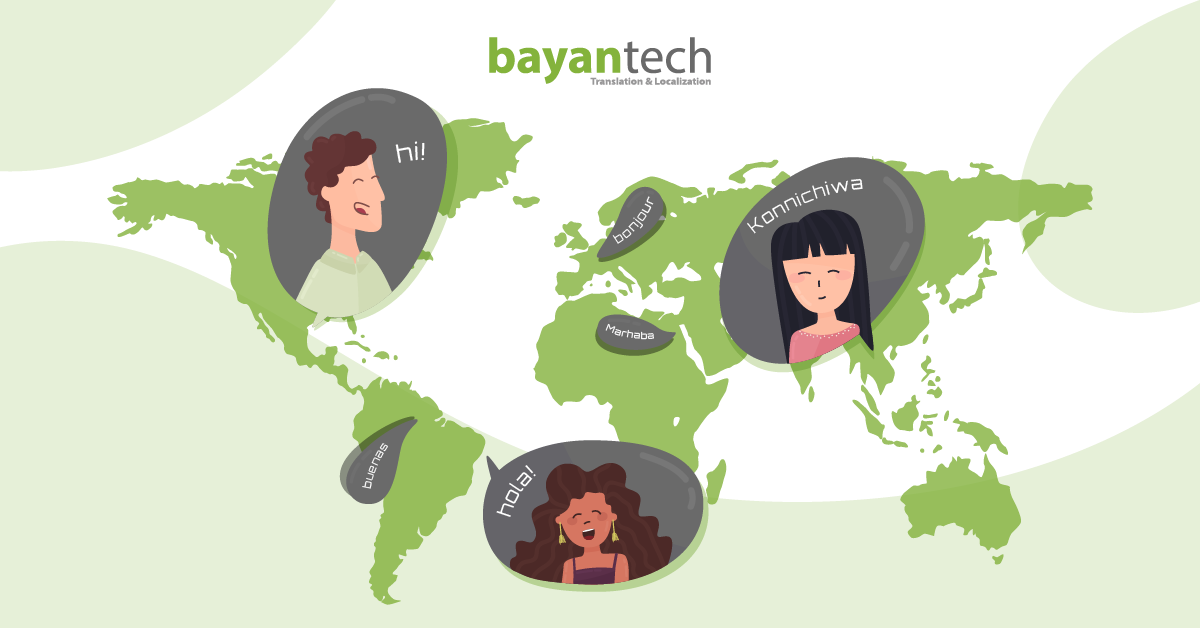We’ve all called out to our mom in a moment of need:
“Mama, where’s my jacket?”
“Mum, I’m hungry!”
“Mama, where are you?”
No matter how we say it, the love behind the word is universal.
But how does “mom” sound in different languages?
Find out here! In this blog, you’ll know how to say mom in different languages and what Mother’s Day celebrations look like in different countries.
Why “Mama” Is Universal
There are some letters that are easier to pronounce than others. A baby usually uses sounds like b, m, and p first because they are bilabial sounds, which are sounds made by closing both lips.
So, if your baby said “baba” before “mama,” that’s because it was probably easier for them to pronounce, not because they love them more.
It’s also easier for babies to say words with repeated syllables. That’s why “mama” is common among so many languages.
Mom in Different Languages
In Arabic
The Arabic language has many dialects, differing from one country and region to another. Here are some of the ways you can say “mom” in different Arabic dialects.
| ماما | (Mama) | Common across Arabic dialects and is used in standard Arabic |
| لوالدة/والدة | (Lwalida/walida) | Used in North African dialects, like Moroccan, Algerian, and Tunisian |
| إمي | (Immy) | Used in Levantine Arabic in countries like Lebanon |
| يوم/يامو | (Youm/yamo) | Used in Syrian Arabic |
| يُمّه/أماه | (Yamma/omah) | Used in the Gulf region, like Saudi Arabia and Qatar |
In Asian Languages
Japanese
| お母さん | (Okāsan) | Polite for “mother” |
| 母 | (Haha) | Informal for “mom” |
| ママ | (Mama) | How young children address their mom |

Chinese
Chinese is spoken in China, Taiwan, and Singapore.
| 母亲 | (Mǔqīn) | Formal way of saying “mom” |
| 妈妈 | (Māma) | Most common way of saying “mom” |
| 妈 | (Mā) | Shortened version of “mama” |
| 阿妈 | (Āmā) |
Korean
| 엄마 | (Eomma) | Informal, similar to “mom” |
| 어머님 | (Eomeonim) | The suffix “nim” is added for formality |
| 어머니 | (Eomeoni) | Standard way of saying “mother” |
Thai
| แม่ | (Mâae) | |
| หม่าม๊า | (Màa-máa) | |
| หม่ามี๊ | (Màa-míi) | |
| ม๊า | (Máa) |
Indonesian
Indonesian is the official language in Indonesia. It shares a lot of similarities with Malay, the official language spoken in Malaysia and Singapore. Both languages use ibu for “mom.”
| Ibu | The word for “mother,” can be used to address older women, and acts as the title “Mrs.” in English | |
| Bunda | More affectionate, equivalent to “mom” | |
| Emak |
Vietnamese
| Mẹ |
Taglog/Filipino
| Nanay | ||
| Inà | ||
| Inày |
Indian
| मां | (Maan) |
In English
English is the main language spoken in the US, UK, Canada, and Australia, with differences in spelling and pronunciation between dialects.
For example, mom is American and mum is British; this change in vowels is one of the common distinctions between these two dialects.
Other variations of “mom” in English include the following:
| Mommy | |
| Mama/mamma/momma | |
| Ma |
In European Languages
Spanish
| Mami | |
| Mama | |
| Madre |
In the Spanish language, Mother’s Day is called Día de las Madres, and it is celebrated on the first Sunday of May.
Italian
| Mamma | ||
| Mammina |

Russian
| Мама | ||
| Мамочка | (Mamachka) | More affectionate, similar to “mommy” |
| Мамулечка | (Mamoolychka) | An even more endearing and affectionate variation |
| Мам | (Mam/ma) |
German
| Mama | ||
| Mutter | Equivalent to “mother” | |
| Mutti | Affectionate and informal | |
| Mami |
French
| Maman | |
| Mère |
Belgian
| Mam | ||
| Mama | ||
| Ma | ||
| Mammie |
Celebrating Motherhood across Cultures
Traditions and customs vary, but the human experience of motherhood needs no translation.
Moms are the first caretakers of their children, and a mother’s love will always be one of the most powerful things in the world.
But in celebrating mothers, cultures vary.
In the Middle East, Mother’s Day is celebrated on March 21. The US, India, Australia, Sri Lanka, and New Zealand celebrate on the 2nd Sunday of May.
In Thailand, Mother’s Day is celebrated on August 12, which coincides with the birthday of Queen Sirikit who is regarded as a mother figure in Thailand.
Indonesia celebrates by the end of December and it’s a celebration of all women, not just mothers.
And like in Japan, Peruvians do not forget mothers who passed away. It’s a custom in Peru to visit the graves of female relatives on Mother’s Day to pay them tribute and to give out flowers.

The Power of Language in Connecting with Mothers
In all languages, “mom” is a powerful word.
There are formal and respectful ways to say “mom” and there are affectionate and endearing ones as well.
And that shows the beauty and power of motherhood.
Sometimes, you need to show the utmost respect when addressing your mother, and other times you address her like when you were younger, with all the affection in the world.
All these word translations of mom in different languages are important to know, especially for businesses planning their campaigns for Mother’s Day worldwide.
You’ll need to use not only the right translation but the right tone.
Each word variation of “mom” has its own use and its own context, and if a variation is used in the wrong context, it can sound ridiculous or even offensive.
bayantech for Efficient Translation & Localization Solutions
No matter what language you want to speak, we can help you deliver your message across.
We work with the best translation and localization specialists in 120+ languages to give you the best cost-effective language solutions.
With experience in multilingual marketing and localization, bayantech can help your business grow. Contact us today to know more!







